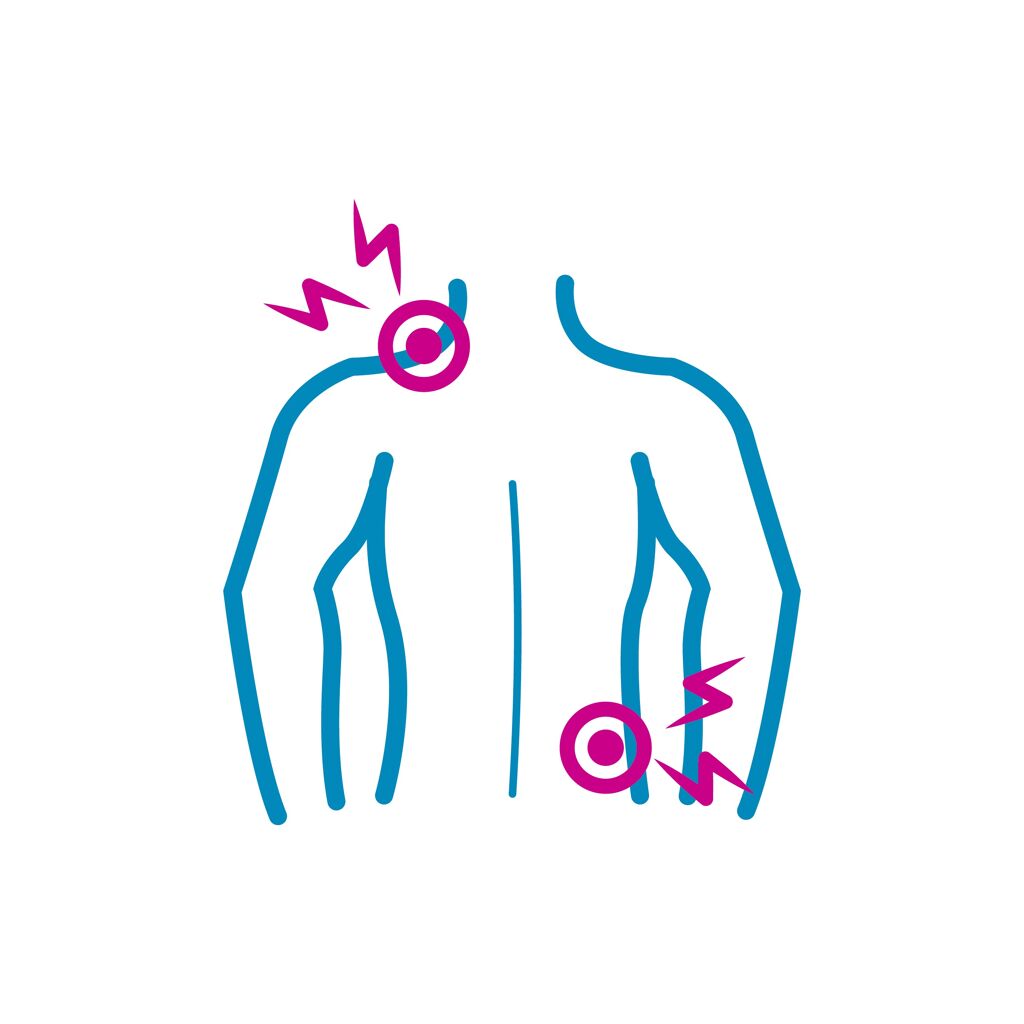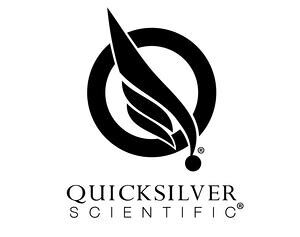Fibromyalgia Treatment Part 3

Fibromyalgia Treatment: In Part 2, we covered the gut as a root cause, the triggers and risk factors for FM. Now in Part 3, we will cover the specific action steps to take if you have FM. We first take a look at the various dietary issues that play a role in FM, starting with excitotoxins. A general anti-inflammatory diet is a great place to start, and then it would be beneficial to trial some of these other dietary ideas, along with finding a good Functional Medicine practitioner to help work through the possible root causes of your FM.
What is the role of excitotoxins?
Excitotoxins are molecules, such as glutamate and aspartate, which are involved in pain occurrence (10). They are excitatory neurotransmitters, whose role is to maintain and extend action potentials, which are electrical signals, in the brain. This is how brain cells communicate with each other. When these neuron receptors are exposed to excitotoxins, they fire impulses at such a rapid rate that they become exhausted, damaged or die. This is excitotoxicity.
Through a chemical process in the brain, the excitatory amino acid glutamate can cause chronic pain (10). In addition to glutamate’s role in central sensitization of pain, abnormal glutamatergic neurotransmission has also been implicated in other common pain conditions such as migraine, TMJ disorder, IBS and depression (10). Furthermore, substance P is a compound in the brain thought to be involved in the transmission of pain and other nerve impulses. It is co-released with glutamate and increases the permeability of the blood brain barrier (BBB) (10). If this barrier becomes permeable, then more glutamate can enter the brain and have further influence on the sensation of pain in FM.
In the diet, glutamate and aspartate are found in foods such as MSG, hydrolyzed protein, protein isolates/concentrates, yeast extract, aspartame, as well as in specific food items such as soy sauce, fish sauces and aged cheeses like sharp cheddar and parmesan cheese. People who eat more of these foods, or who are more sensitive to excitotoxins, could have higher blood concentrations which could lead to abnormal central sensitization of pain, which could be negatively compounded in people with an impaired BBB (10).
One study looked at 4 patients and found that all 4 had complete, or nearly complete, resolution of their symptoms within months after eliminating MSG plus aspartame from their diet (11). Further studies have shown a decrease in FM symptoms after the removal of excitotoxins (10).
It is certainly worth trialing a diet free of excitotoxins to see how it may help FM symptoms as dietary excitotoxins may be leading to increased symptoms in FM. This would involve focusing on a whole foods diet and removing MSG, aspartame and altered proteins (like gelatin, hydrolyzed protein, autolyzed yeast extract, protein concentrates and protein isolates). Certain ingredients on food labels like spices, seasoning, flavoring and natural flavoring should also be avoided since these terms are not specific and could hide these additives. Seasoning packets commonly contain flavor enhancers like MSG. Additionally, foods naturally high in free glutamate including soy sauce, fish sauces, Worcestershire sauce, Bragg’s amino acids and cheeses like parmesan should also be avoided. To avoid aspartame, it is important to avoid diet soda, gum and breath mints. Yogurt, cereal and bread often have aspartame added.
A 1-month testing period (without eating out) is ideal, though in prior research most subjects started to feel an improvement by the end of the first week (10).
To Read About Blog Topic, Scroll Down
Want To Work With Our Clinic?
Do you have a chronic or mystery illness that no one has been able to help you with? Are you simply wanting to re-connect with a healthier version of yourself? It’s Time To Finally Feel Better!
Are micronutrient deficiencies involved?
Another dietary avenue found in research involves correcting particular micronutrient deficiencies. Micronutrients play an important role in optimal neuronal function, and a few nutrients in particular may relate to glutamatergic neurotransmission (10).
- Magnesium and zinc are two minerals in the diet with a key role in regulating excitotoxicity. It is thought that low magnesium and zinc levels could support excitotoxicity (10).
- Another micronutrient of importance to glutamatergic neurotransmission is vitamin B6. Deficiency in B6 can lead to higher levels of glutamate which would enhance excitotoxicity in the central nervous system (10).
- Deficiency in omega-3 fatty acids has been shown to increase excitotoxicity (10). Omega-3 fatty acids to can potentially clear excess glutamate and prevent excitotoxicity.
- Finally, excessive glutamatergic neurotransmission leads to increased need for antioxidants in the diet (10). The two main vitamin antioxidants in the diet are vitamin C and vitamin E.
What about supporting serotonin for fibromyalgia treatment?
Another study focused on relieving FM symptoms through supporting serotonin synthesis through proper absorption of tryptophan in food, while avoiding food components such as fructose and sorbitol that may interfere with the absorption of tryptophan (12). The study was done on 1 FM patient. Encouragingly, this diet resulted in a rapid improvement of symptoms after only few days on the diet, up to the remission of most symptoms in 2 months (12). The patient periodically challenged herself by breaking the diet which resulted in a recurrence of the symptoms.
The patient’s diet included eggs, meat, fish, clams, potatoes, carrots, celery, spinaches, beets, chards, dark chocolates (at least 70 + % cacao), rice, millet, carob powder, walnuts, extra virgin oil, grape seed oil, thyme, sage, rosemary, coffee, green tea, and small amount of almonds. Foods that were avoided were processed food containing artificial sweeteners, high fructose corn syrup, sorbitol, glutamate, and aspartame such as soft drinks, fruit juices and confectionery, any food containing free fructose such as honey and fruits, most legumes, wheat and cereals, and many vegetables that contain fructans and inulins (12). Whilst very encouraging, this study involves one person so it is unclear how applicable it may be to other FM sufferers.
Also, natural supplements can help. We like 5-HTP for serotonin support. 50-100mg per day is a good place to start. If there are sleep issues, taking it before bed can help improve melatonin status because after 5-HTP converts to serotonin, it then converts to melatonin.
What about raw food for fibromyalgia treatment?
A small study involving 30 patients was done trialling a mostly raw, pure vegetarian diet (13). Participants ate raw fruits, salads, carrot juice, tubers, grain products, nuts, seeds, and a dehydrated barley grass juice product. 19 of the 30 participants experienced significant improvement in all symptoms (13). At 7 months, these people were no longer statistically different from norms for women ages 45–54, apart from the symptom of bodily pain (13). This was the symptom that responded least well to the raw diet.
What about going gluten-free for fibromyalgia treatment?
One study looked at people suffering from FM, as well as IBS. Amongst their study sample, 7 were women who also had (previously undiagnosed) celiac disease. After 1 year on a gluten-free diet, these participants experienced significant improvement in FM symptoms. The authors of the study believe that this indicates an underlying food hypersensitivity-related mechanism (14).
Would healing the gut help?
If a gluten-free diet can lead to significant improvement in symptoms and we know that there may be a connection between FM and gut conditions like IBS, SIBO, dyspepsia, leaky gut, celiac disease and possibly others, then we can surmise that healing the gut will help in the case of FM. We could take that one step further and embark on a specific and targeted gut healing protocol, which would focus on healing the specific gut condition, be it IBS, SIBO, celiac, etc., in order to alleviate FM symptoms.
Conclusion for fibromyalgia treatment
Although conventional medicine has focused on managing symptoms of FM, there are a number of dietary treatment ideas that can lead to a complete or partial improvement in FM symptoms, according to the studies that exist.
Gut healing is an obvious place to start with the possibility of also focusing on excitotoxins, micronutrient levels and/ or serotonin support.
Things that you can do for fibromyalgia treatment
- Find a functional medicine doctor to do root cause lab testing (call us at 720-722-1143 if you want to find out more about how to set up an appointment in our office)
- Get functional lab tests to identify root causes (a list of these are included below)
- Dietary change (trial different diets and include elimination of excitotoxins, removal or minimization of gluten and sugar, and increase micronutrients discussed in this article)
- Support serotonin through diet and/or take 5-HTP 50-100mg daily (before bed if you have sleep issues) – you can order through our online supplement store here: https://us.fullscript.com//welcome/livinglove
- Some of the micronutrients that could be supplemented (and/or you can get them from diet) include: Vitamin B6 (P-5-P 50mg per day), Zinc (15-30mg daily), Omega 3 (Cod Liver Oil or other quality fish oil), Vitamin C (600-1200mg per day), Vitamin E (we don’t like alpha tocopherol, but Annatto Tocotrienols that are high Gamma can help at about 125mg daily with dinner).
- Magnesium is often helpful for FM: Magnesium Glycinate 400-600mg per day
- If you’d like a supplement pack auto-shipped to you monthly with a specially formulated combination including the above plus some other supplements we have found helpful, email [email protected] with the subject line “Fibromyalgia Supplement Packs” to find out more information about how to get started.
Labs to find root causes associated with FM:
- Small Intestinal Bacterial Overgrowth (SIBO) breath test
- Comprehensive Data Stool Analysis (CDS) with Parasitology x3
- HLA-DR panel for genetics associated with mold toxin accumulation
- Blood sugar panel including fasting glucose, HgA1c, and fasting insulin
- Blood hormone panel including Estradiol, Progesterone, Testosterone, Cortisol, and DHEA-S (for menstruating women not on a hormonal birth control, getting this on days 18-22 is best)
- Toxic metals panel
- Organic Acids panel
- NOTE: not all of these labs are needed for everyone with FM. A skilled functional medicine doctor can prioritize which are most necessary based on a comprehensive case history to assess for which root causes are more likely. The functional medicine doctor can then prioritize the most likely root causes and start testing just for some of the main issues that would be most likely. Follow-up testing can be done if findings are not as expected on the initial lab order. If you would like to find out more about getting started with a functional medicine doctor in our clinic, click on “Schedule a Discovery Call” now.
Want help with your health? Book a free health evaluation call to see if you are a good fit for our clinic by clicking the button on the left below. If you are a clinician interested in advancing your training, please check out our online worldwide functional medicine training institute by clicking the button on the right below.
Book My Free Phone Health Evaluation Functional Medicine Certification for Clinicians
REFERENCES
- 10. Holton The role of diet in the treatment of fibromyalgia. Pain Management. 2016; 6.
- 11. Smith JD, Terpening CM, Schmidt SO, Gums JG. Relief of fibromyalgia symptoms following discontinuation of dietary excitotoxins. Ann Pharmacother. 2001; 35:702-6.
- 12. Lattanzio SM, Imbesi F. Fibromyalgia Syndrome: A Case Report on Controlled Remission of Symptoms by a Dietary Strategy. Front. Med. 2018 | https://doi.org/10.3389/fmed.2018.00094
- 13. Donaldson MS, Speight N, Loomis Fibromyalgia syndrome improved using a mostly raw vegetarian diet: An observational study. BMC Complement Altern Med. 2001; 1: 7.
- 14. Rodrigo L, Blanco I, Bobes J, and de Serres Clinical impact of a gluten-free diet on health-related quality of life in seven fibromyalgia syndrome patients with associated celiac disease. BMC Gastroenterol. 2013; 13: 157.
- 15. Curtis K, Osadchuk A, Katz J. An eight-week yoga intervention is associated with improvements in pain, psychological functioning and mindfulness, and changes in cortisol levels in women with fibromyalgia. J Pain Res. 2011 ;4:189-201.
Are You Suffering From A Chronic Illness?
Does your current health situation look like this…
- Do you feel that you have tried many things and either nothing works, or the treatment does not hold?
- Have you been told that there is nothing that can be done to reverse your illness and you just need to manage symptoms?
- Does your illness impact your work, your family, your happiness and your social life?
We specialize in finding answers and solutions for complicated chronic illness when people feel like they have tried everything. If this sounds like you, book a free call with us to see if we are the right fit for your health goals.
Dr. Miles has spoken for the following organizations:


















Responses